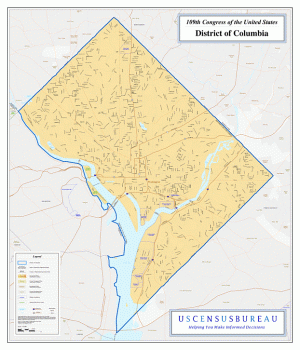The effort to get the executive branch to reschedule marijuana has been blocked by a federal appeals court. While appeals will continue, efforts will now turn to forcing change in Congress and with the Obama administration.
Although it hasn't made reformers' top target list, Washington, DC, could be ripe for a marijuana reform initiative, whether legalization, expanding medical marijuana, or decrim. Local activists are meeting and national organizations are watching.
Apply for an internship at StoptheDrugWar.org and you could spend a semester fighting the good fight!
Sen. Pat Leahy (D-VT), head of the Senate Judiciary Committee, has said he wants to abolish mandatory minimum sentences, and he hopes the federal government doesn't spend a lot of money enforcing marijuana laws in states where it is legal.
A half-dozen states are expected to see marijuana legalization bills filed this year, but Hawaii is first out the gate after the House speaker filed a bill on Friday.
An important federal court ruling, medical marijuana bills start popping up in the states, more providers get prosecuted, and LA continues to stumble toward a resolution of its dispensary issue.
MedicalMarijuana.ProCon.org, part of the ProCon.org family, is an in-depth web site presenting information and views from a variety of perspectives on the medical marijuana issue. The Chronicle is running a six-part series of info items from ProCon.org, of which this week's is the third.
A British grandmother caught smuggling 10 pounds of cocaine into the Indonesian resort of Bali has been sentenced to death -- even though prosecutors asked only for 15 years. The court said her actions hurt Bali's reputation as a tourist destination.
Colombia's FARC guerrillas have called on the Colombian government to consider legalizing coca cultivation for medicinal and therapeutic ends and for cultural reasons.
A young Orlando man has died after being shot by police during a drug investigation Wednesday night. He becomes the year's second drug war fatality.
A Pauls Valley, Oklahoma, woman suffering from terrible pain went to the hospital for help. Instead, she was jailed for possessing two pain pills without a prescription. She died in jail two hours later.
There's something fishy in a Virginia evidence room, a Louisiana deputy gets in trouble for peddling fake weed, three suburban Chicago cops were running a dirty racket, an NYPD cop gets himself arrested, and a Miami cop gets himself convicted.
In a ruling Tuesday, the Court of Appeals for the DC Circuit denied a petition seeking to reschedule marijuana. The court held that while petitioners had presented some evidence of marijuana's medical efficacy, there was not enough to override the federal government's decision to place marijuana on Schedule I, the most restrictive classification.

E. Barrett Prettyman US Courthouse and William B. Bryant Annex
Schedule I drugs, which also include heroin, LSD, and ecstasy, are those that are considered to have no medical use and a high potential for abuse. Marijuana was placed in Schedule I when Congress passed the Controlled Substances Act in 1970, and the DEA and FDA have consistently refused efforts to reschedule it.
The ruling came in
Americans for Safe Access v. Drug Enforcement Administration. It comes more than 10 years after the Coalition for Rescheduling Cannabis, led by Jon
Gettman, originally filed its
petition in October 2002 and 40 years after
NORML first filed a petition seeking to reschedule the herb. The Coalition petition was denied in 2011, after
ASA sued the Obama administration for delaying its response. The current appeal was the first time in two decades that a federal court has reviewed the issue of whether there exists adequate scientific evidence to reschedule marijuana.
The first challenge for petitioners was that of standing to sue. The presence of disabled Air Force veteran and
Veterans for Medical Cannabis Access member Michael
Krawitz among the petitioners provided that standing.
Krawitz, who has tussled with the Department of Veterans Affairs over his use of medical marijuana, "has suffered injury-in-fact because he must shoulder a financial cost for services he would otherwise obtain for free of charge from the VA" and thus has standing to sue, the court held.
But that was just the threshold question. On the substantive issue of rescheduling marijuana, the court came down squarely on the side of the federal government.
"The question before the court is not whether marijuana could have some medical benefits," wrote Senior Circuit Court Judge Harry Edwards for the majority. "Rather, the limited question that we address is whether the DEA’s decision declining to initiate proceedings to reschedule marijuana under the CSA was arbitrary and capricious… On the record before us, we hold that the DEA’s denial of the rescheduling petition survives review under the deferential arbitrary and capricious standard. The petition asks the DEA to reclassify marijuana as a Schedule III, IV, or V drug, which, under the terms of the CSA, requires a 'currently accepted medical use.' The DEA's regulations… define 'currently accepted medical use' to require,
inter alia, 'adequate and well-controlled studies proving efficacy.' … We defer to the agency’s interpretation of these regulations and find that substantial evidence supports its determination that such studies do not exist."
"The court says the DEA didn't act arbitrarily and capriciously, but if that wasn't arbitrary and capricious, I'm going back to the dictionary," said a frustrated
Krawitz. "This is an issue with 70% supporting change, yet nothing happens. We have a handful of champions in Congress, but where is one person in the federal government who represents us? How can there be so little integrity at the National Institutes for Health and the FDA, where they are supposed to be there to protect our interests?"
"We're stuck in a Catch-22 -- the DEA is saying that marijuana needs FDA approval to be removed from Schedule I, but at the same time they are obstructing that very research," said Tamar Todd, senior staff attorney for the
Drug Policy Alliance. "While there is a plethora of scientific evidence establishing marijuana's safety and efficacy, the specific clinical trials necessary to gain FDA approval have long been obstructed by the federal government itself."
"It's more of the same from the federal courts. I'm disappointed, but not surprised," said Dale
Gieringer, longtime head of
California NORML. "There has been a long line of court decisions affirming the federal government's dictatorial power to make arbitrary decisions about drugs. Ironically, this decision comes on the same day as the
40th anniversary of Roe v. Wade. Women in this country have the right to terminate the live of their fetuses, but not to smoke a joint."
"To deny that sufficient evidence is lacking on the medical efficacy of marijuana is to ignore a mountain of well-documented studies that conclude otherwise," said Joe
Elford, Chief Counsel with
Americans for Safe Access (
ASA), which appealed the denial of the rescheduling petition in January of last year. "The Court has unfortunately agreed with the Obama Administration's unreasonably raised bar on what qualifies as an 'adequate and well-controlled' study, thereby continuing their game of 'Gotcha.'"
ASA said it will seek an en
banc review of the decision by the full DC Circuit and will go to the Supreme Court if necessary. The group said it will argue that the Obama administration has acted "arbitrarily and capriciously" by shifting its definition of what constitutes "medical efficacy." The administration now argues that Stage II and III clinical trials are necessary to show efficacy, while
ASA contends that the more than 200 peer-reviewed studies it cited in legal briefs in the case meet the standard.
"The Obama Administration's legal efforts will keep marijuana out of reach for millions of qualified patients who would benefit from its use," said
Elford. "It's time for President Obama to change his harmful policy with regard to medical marijuana and treat this as a public health issue, something entirely within the capability and authority of the executive office."
While
ASA pursues its appeals in the courts, it is also trying to turn up the heat on Congress and the administration. With rescheduling through the courts blocked -- at least pending a favorable ruling on appeal -- that is where the action will be.
"I'm not optimistic that the courts are going to change their position," said
Gieringer. "That means we will have to put pressure on the administration or Congress to do it."
But it's important to see that rescheduling is not an end in itself, but a means, said
Gieringer.
"Rescheduling in itself would accomplish very little in the real world," he pointed out. "It would not end the federal-state conflict on marijuana, and even if it were rescheduled, there is still no FDA-approved supply. All of the marijuana out there today would still be an illegal controlled substance without FDA approval."
Marijuana policy reform is not just about real world effects; it is also about perceptions, and rescheduling marijuana would have been something of a game changer, as
Gieringer noted.
"Symbolically, of course, it would have been huge," he said. "It would open the way for prescriptions and help unblock research -- the controls on Schedule II drugs are not nearly as fearsome. Still, rescheduling would have been a baby step, but a lot of other stuff has to happen, and that requires an act of Congress, and I haven't seen any sign of that."
But the federal courts have so far made clear that they will defer to Congress and the executive branch on these issues. That means that's where the battle will have to be won.
back to top
In the wake of the legalization victories in Colorado and Washington last November, and medical marijuana in Massachusetts, activists are talking about where the next marijuana reform campaigns should be waged and what they should attempt to do. One document that has gotten some discussion is from the Marijuana Policy Project (MPP), listing seven states where it would be working to legalize marijuana next. The list includes possible tax and regulate initiatives in Alaska, California, Maine, Massachusetts, Nevada and Oregon.

DC's partial diamond (map from census.gov)
Absent from the list is one jurisdiction that would also appear ripe for a legalization initiative: Washington, DC. The nation's capital has several things going for it.
DC has the initiative process, and activists used it to great effect in passing medical marijuana with 69% of the vote in 1998 (even if, thanks to Congressional action and the glacial pace of the DC government it has taken 15 years to implement it). The District is also overwhelmingly liberal; Obama won with 91% of the vote in November.
Unlike large states like California, the District is small in size and population and would not require a huge expenditure of resources to gather enough signatures to make the ballot. Similarly, it is a relatively small media market, meaning TV advertising would be in reach of all but the most ill-funded campaign.
Last, but not least, it is the nation's capital. A successful initiative in Washington, DC, would reverberate not only around the country, but around the world, particularly an initiative that enacted legalization..
MPP may not have included the District in its "to do" list, but that doesn't mean the organization isn't watching, said the organization's director of governmental relations, Steve Fox.
"[DC] is being discussed," said Fox. "When you look at the places where an initiative would be possible, the District stands out. One reason we didn't mention it is that it’s a jurisdiction where we're not necessarily looking at tax and regulate, but there are options to do less, such as a decriminalization initiative."
The problem of congressional interference is cause for concern, though, Fox said.
"DC certainly is ripe for some kind of reform, but we also have to be cognizant of the fact that it is unique in that it has congressional oversight," Fox said. "With the medical marijuana system finally getting off the ground, we don't necessarily want to ruffle any feathers by attempting to do anything too bold. When the medical marijuana initiative passed in 1998 and Congress wanted to mess with it, they ended up having a provision something along the lines of DC not being able to spend any funds to lower or reduce penalties related to any schedule I or II substances. If Congress thought DC was going too far too fast, it could block DC from spending any money for reforms of Schedule I substances."
Doing DC would be tempting, said Fox, but again worried about moving too fast for Congress.
"There would certainly be value in passing something in the District," he mused. "You would be making a statement that a strongly Democratic-leaning jurisdiction thinks marijuana should be regulated like alcohol, but that might not be big news to a lot of people. The real impact and real value would be to actually have a regulated market in operation, and members of Congress could see that the sky isn't falling. We've waited 15 years to show Congress you can have medical marijuana dispensaries up and running and serving patients and the public good, and we want to make sure Congress has a chance to absorb that reality."
"As a longtime DC resident, I've always thought of the District as low-hanging fruit," said Allen St. Pierre, executive director of
NORML, who expressed interest in an initiative. "The media market is limited, and there is an overwhelmingly liberal population. But we don't even have a
NORML chapter here, and I see little impetus in the reform community."
But things are happening in the District, according to long-time activist Adam
Eidinger, co-owner of the Capitol Hemp Emporium until it was forced to close under law enforcement pressure last year.
Eidinger told the Chronicle that both legalization and medical marijuana activists were meeting to plot potential courses of action, including either a legalization initiative or an initiative to expand medical marijuana rights.
"We're thinking 2014," said
Eidinger, "but while I think this is a no-brainer, it has to be poll tested. We're not going to go for it if it polls less than 65%. "We will poll medical as well as legalization and see what the difference is. I know some of our friends wouldn't support legalization, but would support a patients' rights initiative that would give them the right to grow limited amounts, more rights to use outside the home, and more flexibility on dispensaries. This isn't California; DC is super strict on medical marijuana, and the patients here are going to be AIDS patients and cancer sufferers."
Test polling will happen soon, he said.
Eidinger, who also runs a media consulting firm, also saw the potential for a media coup. "This is a great place to do it for the public relations value," he said.
MPP's Fox said the group was looking for a few good people.
"As
MPP did in Colorado and with medical marijuana in Arkansas, what we look for are committed and competent people on the ground who are able to do this kind of work," Fox said. "We're looking to support good people. I coordinate ballot initiatives, and I'm in DC, and so are other activists. I would be happy to work with local activists to craft something."
"The symbolism alone would probably be worth it," said St. Pierre. "It probably wouldn't cost more than $15,000 or $20,000 to get it done. This is a low cost project with a huge potential upside."
If recent comments from DC elected officials are any indication, further marijuana law reform is only going to come through the initiative process. While one city council candidate,
Paul Zuckerberg, is running on a platform that includes decriminalization, the mayor and other top officials have made clear they are not interested in going further.
"I'm not prepared at this stage to support the decriminalization of any drugs at this point," Mayor Vincent Gray said
earlier this month. "Look at the most abused substance in our society, and it's probably alcohol. People do abuse, irrespective of whether it's legal or not."
Police Chief Cathy Lanier also expressed unease, although her comments did suggest she drew a line between marijuana and other drugs.
"I know the legalization of marijuana is in large debate around the country, whether it be medical marijuana or just straight-out legalization of marijuana. That's one issue," Lanier said. "But I think when you talk about some of these other drugs that are extremely dangerous -- PCP, for example -- to say that we should decriminalize that and just allow people to have that without any penalty in the community would just be devastating."
With the DC council unlikely to advance reform, that leaves the field open to potential initiative campaigns. The District is most likely ripe for the picking, if anyone decides to go that route.
back to top
StoptheDrugWar.org works for an end to drug prohibition worldwide and an end to the "drug war" in its current form. We believe that much of the harm commonly attributed to "drugs" is really the result of placing drugs in a criminal environment. We believe the global drug war has fueled violence, civil instability, and public health crises; and that the currently prevalent arrest- and punishment-based policies toward drugs are unjust. Please visit our web site, and please read more about us.
We are seeking Legislative, Writing/Research, Web Content, Information Technology, and Admin/Finance interns (potentially still this semester, depending on your interests, definitely for the summer). Communications may also be applicable to current organizational projects. Preference will be given to applicants with some demonstrated experience the relevant fields, and to applicants in the Washington, DC area. However, consideration will also be given to enthusiasm for drug policy and criminal justice reform.
Note that StoptheDrugWar.org internships are unpaid. We reimburse for metro fare. Please also note that the organization has functioned as a "virtual office" environment since spring 2011. Staff will meet with interns on a regular basis during the semester, and can be available to meet and work together on a weekly or even daily basis, but this will happen in places like coffee shops or campuses.
In order to help our interns forge ties with the larger community, we are organizing intern networking social hours with other organizations in drug policy and justice reform. We are also arranging tours of the DC courts and possibly jail, and public health and other programs that have bearing on drug policy. Interns are also welcome to join us at the frequent legislative working group meetings that take place on our issues here in Washington.
Please send cover letter, resume, and any supporting material you'd like to include, to StoptheDrugWar.org executive director David Borden, at [email protected]. (We recommend using a return receipt to ensure your emails are not blocked by any filters.) Thank you, and we look forward to hearing from you. Information on our specific intern positions follows below.
Legislative
Legislative interns will help, and in some cases play a leading role, on the following organizational projects:- Bill and vote tracking, at the federal and state level, including write-ups for our web site's legislative center (possibly in collaboration with Writing interns);
- Creating action alerts on current legislation and other advocacy priorities, to be distributed through our web site and email list (possibly in collaboration with Writing and Web Content interns); and
- Coalition outreach to secure partners for organizational sign-on letters to Congress.
Interns may also join us at working group meetings on issues including but not limited to sentencing reform, drug policy including marijuana law reform; collateral consequences of criminal convictions; and reinvigorating the presidential clemency/pardon system. Spanish-language skills may be useful.
Writing/Research
Writing/Research interns will have the following opportunities:
- Assist Drug War Chronicle editor Phillip S. Smith with ongoing article collection and research for feature articles on our web site (which are frequently reprinted on major news sites such as alternet.org).
- Assist with research on special topics, the goal of which is the publication of special reports. Likely projects include but are not necessarily limited to follow-up research on US drug war killings (see our recent report here); procuring drug arrest data and possibly arrest reports from various jurisdictions for various months and years, to evaluate the results of recent policy reforms, particularly for marijuana.
- Bill and vote tracking, at the federal and state level, including write-ups for our web site's legislative center (possibly in collaboration with Legislative interns);
- Creating action alerts on current legislation and other advocacy priorities, to be distributed through our web site and email list (possibly in collaboration with Legislative interns);
- Updating an archive of SWAT raids and other paramilitarized policing activity that went wrong (possibly in collaboration with Web Content interns); and
- Assisting with updating or creating various special sections of our web site (possibly in collaboration with Web Content interns).
Interns with Spanish-language skills may be involved with reporting on the Mexican drug war.
Web Content
Web Content interns will assist with the following work:
- Daily link and other content postings;
- Development or maintenance of special sections of our web site (possibly in collaboration with Writing interns); and
- General social media work, including a number special social media projects.
We may also initiate an informal web video series, for which intern assistance would be invaluable, but this has not been decided yet.
Information Technology
IT interns will assist with the following projects:
- Backend web site programming, primarily involving streamlining of our donations processing system;
- Server migration to a "cloud" arrangement;
- Security including PCI compliance;
- Selection and set up of needed software and services; and
- Database-related projects.
Admin/Finance
Admin & Finance interns may assist with the following organizational needs, among others:
- Bookkeeping;
- Nonprofit accounting including intra-company allocations and 990 preparation;
- Budget & cash flow analysis;
- Membership administration;
- Database work.
Admin & finance interns will gain familiarity with a significant range of nonprofits' administrative activities, and depending on schedule may have the opportunity to sit in on portions of board discussions or meetings with advisors.
Communications
As noted above, communications skills are applicable to a number of facets of our work this semester, and communications majors are encouraged to apply. We have not listed communications as a separate internship this semester, because we have not decided whether to engage in specific outreach efforts to mainstream media this semester. Along with the possibility that we will do so, other work of relevance to communications can be found in our Legislative, Writing, and Web Content internships.
Thank you for considering an internship with our organization. We look forward to hearing from you.
back to top
Sen. Pat Leahy (D-VT), the powerful head of the Senate Judiciary Committee, called for the end of mandatory minimum sentencing at both the state and federal levels in comments made last Wednesday. He also said he hoped the federal government would not spend "a great deal of resources" on enforcing marijuana laws in states where it is legal.

Sen. Leahy addresses law students at Georgetown University (leahy.senate.gov)
While Leahy said his highest priority in the new Congress that begins next month would be overhauling immigration laws, along with renewing the Violence Against Women Act and taking some action on gun policy, he diverted from his prepared remarks to Georgetown University law students to condemn mandatory minimum sentencing, calling the practice "a great mistake" that harms youth and minorities.
"I think at the federal level and at the state level, get rid of these mandatory minimum sentences. Let judges act as judges and make up their own mind what should be done," he said. "The idea that we protect society by one size fits all, or the idea that we can do this kind of symbolism to make us safer -- it just does not work in the real world."
Leahy, who has previously said he would hold hearings on the federal response to successful marijuana legalization initiatives in Colorado and Washington, did not bring up the topic in his prepared remarks, but did respond to questions from students on the issue. He reiterated that he will seek clarification from the administration on how it will enforce federal marijuana laws there and suggested that he hoped it would not be a high priority.
"My own predilection is, I hate to see a great deal of law enforcement resources spent on things like the possession, use of marijuana when we have murder cases, armed robbery cases, things like that that go unsolved," he said.
Leahy is the longest serving Democrat in Congress. He could have been appointed to the chairmanship of the budget-controlling Senate Appropriations Committee, but instead chose to stay on as head of the Judiciary Committee, where he has the power to call hearings and move legislation on criminal justice issues.
back to top
Hawaii House Speaker Joseph Souki (D-8) last Friday introduced a bill to legalize the possession of marijuana by adults and create a system of taxed and regulated legal marijuana commerce. The measure, House Bill 150, would allow people 21 and over to possess up to an ounce and grow an as yet unspecified number of plants in a secure location.
The bill passed its first reading last Friday, but has yet to be sent to a committee. The 2013 legislative session began Tuesday.
"Regulating and taxing marijuana similarly to alcohol takes marijuana sales out of the hands of criminals and puts them behind the counter in legitimate businesses that will generate significant new revenue for Hawaii," said Mason
Tvert, director of communications at the
Marijuana Policy Project, which is working on passage of the bill. "Law enforcement resources should be focused on preventing and responding to serious crimes rather than enforcing antiquated marijuana prohibition laws."
In addition to allowing adult possession and cultivation, the bill would also authorize the state to license marijuana retail stores, cultivation facilities, product manufacturing facilities, and testing facilities. Public pot smoking, driving under the influence, and use by individuals under the age of 21 would remain illegal.
The bill introduction comes on the heels of the release earlier this month of a
QMark Research Poll that showed support for legalization at 57%. That poll was sponsored by the Drug Policy Action Group, a sister group of the
Drug Policy Forum of Hawaii, and the
ACLU of Hawaii, suggesting that local as well as national reform groups are pushing the bill.
In the wake of the legalization victories in Colorado and Washington last November, at least a half dozen states are expected to entertain legalization bills. Hawaii is first out the gate; the others are Maine, Massachusetts, New Hampshire, Rhode Island, and Vermont.
back to top
An important federal court ruling, medical marijuana bills start popping up in the states, more providers get prosecuted, and LA continues to stumble toward a resolution of its dispensary issue. Let's get to it:
National
On Tuesday,
the DC Circuit Court of Appeals rejected a petition to reschedule marijuana.The nearly 11-year-old petition had been rejected by the DEA, and the appeals court upheld that decision. While attorneys for petitioners say they will appeal -- to the Supreme Court if necessary -- advocates are now turning their attention to Congress and the administration.
California
Last Wednesday,
the state Supreme Court denied review of a landmark medical marijuana case,
People v. Jackson. In that case, the Fourth District Court of Appeals had overturned the conviction of San Diego dispensary operator
Jovan Jackson and established a clear defense for Jackson and others like him who are prosecuted in state court. The Fourth District court had held that in mounting a defense at trial, "Jackson was only required to produce evidence which would create a reasonable doubt as to whether the defense provided by the [Medical Marijuana Program Act] had been established." The court further held that, "the collective or cooperative association required by the act need not include active participation by all members in the cultivation process but may be limited to financial support by way of marijuana purchases from the organization. Thus, contrary to the trial court's ruling, the large membership of Jackson's collective, very few of whom participated in the actual cultivation process, did not, as a matter of law, prevent Jackson from presenting an
MMPA defense."
Last Friday,
a Stockton dispensary operator pleaded guilty in federal court to marijuana manufacturing and distribution charges. Lynn Farrell Smith, 62, was a co-owner of a half dozen Stockton and Sacramento-area dispensaries and grew marijuana at a Stockton warehouse to supply the stores. Prosecutors said he made millions while hiding under the cover of the state's medical marijuana laws.
On Tuesday,
the LA city council voted to put two medical marijuana initiatives on the May ballot. The two must come up for a second vote next week, when the council considers its own third initiative. One initiative would allow about 100 dispensaries to remain open; the other would allow most of the estimated 500 dispensaries currently operating in the city to remain open.
Also on Tuesday,
the Antioch city council voted to ban dispensaries. The ban passed on a 3-2 vote after city staff told the council it had concerns about burglaries and robberies at dispensaries and over the sale of illegal drugs to youngsters.
Connecticut
Last Wednesday,
state officials handed in draft regulations for in-state cultivation and sale of medical marijuana to
Gov. Dan Malloy (D). The draft rules include nuts-and-bolts guidelines for growers, doctors, patients obtaining medical certificates and even the disposal of unused marijuana, which could be turned in to local police. If the regulation process proceeds smoothly, dispensaries could be operating by late this year or early next year.
Iowa
Last Wednesday,
Rep. Bruce Hunter (D-Des Moines) introduced a medical marijuana bill. The bill,
House File 22, would allow
Iowans with debilitating medical conditions to obtain and use marijuana without fear of arrest. It would also create a dispensary system.
Montana
Last Thursday,
a medical marijuana worker was sentenced to four years in federal prison for his involvement with Montana Cannabis, which was raided by the DEA as part of 2011's statewide sweep of dispensaries. Dan Nichols had done construction and worked as a night watchman at the dispensary. Several other Montana Cannabis operators have already been sentenced to federal prison, including 68-year-old Richard
Flor, who died there.
Also last Thursday,
a medical marijuana provider was convicted in federal court of "conspiracy to manufacture and distribute marijuana" and "possession with intent to distribute marijuana," but was acquitted of another felony, possession of a firearm in furtherance of a drug-related crime. Former Montana Grizzlies quarterback Jason Washington claimed to be in compliance with Montana's medical marijuana law but, as is typical with such federal cases, defendants like Washington are routinely denied a defense. He is facing a 5-year mandatory minimum sentence, up to 40 years in prison, and more than $10 million in fines and forfeitures.
Also last Thursday,
a district court judge issued a second injunction blocking implementation of SB 423, the law passed by the state legislature that effectively gutted the state's voter-approved medical marijuana law. Judge James Reynolds had ordered a similar injunction last year, but was reversed by the state Supreme Court. After hearing new testimony, he issued a more thorough ruling last Thursday.
Oklahoma
On Monday,
Sen. Constance Johnson (D-Oklahoma City) filed a medical marijuana bill. The bill,
Senate Bill 902, directs the medical board to develop and adopt rules allowing patients to obtain permission from their doctors to use marijuana.
South Dakota
On Wednesday,
two senators said they were introducing a medical marijuana defense bill.Sen. Craig
Tieszen (R-Rapid City) and Rep. Dan Kaiser (R-Aberdeen) were hoping to introduce the bill Wednesday. It would allow persons caught with two ounces or less of marijuana to argue a medical necessity defense.
Texas
Last Friday,
Rep. Elliot Naishtat (D-Austin) introduced a medical marijuana affirmative defense bill. The bill,
House Bill 594, would enact protections for physicians who make written or oral statements to their patients that marijuana would likely provide benefits that outweigh any risks. Patients whose doctors make such statements would be able to present evidence of the statement in court if charged with possession of marijuana and have their charges dismissed.
Washington
Last Wednesday,
the Bremerton city council voted to ban collective medical marijuana gardens. Such gardens are legal under a 2011 state law, but the council sided with city attorneys, who warned that regulating and permitting the gardens might put city workers at risk from the federal government, which considers all marijuana production illegal.
back to top
Did you know there were 127 doping cases reported at the Olympics between 1968 and 2010? Read the details in "Doping Cases at the Olympics, 1968-2010," on the web site sportsanddrugs.procon.org, part of the ProCon.org family. Also on sportsanddrugs.procon.org: "Top 10 Pros and Cons: Should performance enhancing drugs (such as steroids) be accepted in sports?", and other resources.
This is the third in a six-part series of ProCon.org teasers being published in Drug War Chronicle. Keep tuning in to the Chronicle for more important facts from ProCon.org the next several weeks, or sign up for ProCon.org's email list or RSS feed. Read last week's Chronicle ProCon.org piece here.
ProCon.org is a web site promoting critical thinking, education, and informed citizenship by presenting controversial issues in a straightforward, nonpartisan primarily pro-con format.

back to top
An Indonesian court last Tuesday sentenced a British woman to death for trying to smuggle about 10 pounds of cocaine into the resort island of Bali, the anti-death penalty group Hands off Cain reported. Lindsay Sandiford, 56, cried when she heard the sentence, but had no other comment before being led back to jail.
Sandiford had been arrested upon arrival in Bali's international airport in May, when authorities found 4.8 kilograms of cocaine in the lining of her suitcase. She told authorities a criminal gang had threatened her and her children if she didn't transport the drugs, which had a street value of $2.5 million.
The practice of imposing the death penalty for drug offenses is frowned upon by the UN, which considers it a human rights violation. That stance is even embraced by
th UN Office on Drugs and Crime. "
UNODC advocates the abolition of the death penalty and calls upon Member States to follow international standards concerning prohibition of the death penalty for offenses of a drug-related or purely economic nature," the international agency said in
2010 report (see page eight).
While Indonesia has notoriously harsh drug laws -- it is among the nations listed by Harm Reduction International's
Death Penalty Project as both having and using the death penalty for drug offenses --
Sandiford's sentence was harsher than expected.
Two other Britons charged in the case received lesser sentences (a fourth awaits sentencing), and prosecutors had recommended only 15 years in prison, but judges at the
Denpasar District Court said there was no reason for a light sentence. She had damaged Bali's reputation as a tourist destination, they said.
Sandiford joins an estimated 114 other prisoners on Indonesia's death row, most of them convicted of drug offenses. At least 40 death row inmates are foreigners, including several Australians.
Since 1998, five foreigners have been executed in Indonesia, all for drug offenses. The good news is that Indonesia hasn't actually executed anyone since 2008, when 10 people went to the gallows.
back to top
In peace talks in Havana Tuesday, Colombia's FARC guerrillas called on the Colombian government to consider legalizing coca cultivation. The proposal was part of the FARC's broader proposal on agrarian development and land reform.

FARC negotiator Rube Zamora (pazfarc-ep.blogspot.com)
The proposal came one day after the
FARC ended its self-imposed cease-fire (the Colombian government never agreed to a cease-fire during the peace talks) and
launched a series of attacks on security forces, leaving at least one soldier dead.
The
FARC is a socialist
polÃtico-military formation that has been in rebellion against the central government in Bogota since 1964. Its military strength seems to have peaked about a decade ago, but it remains a potent
forcé in some sectors of rural Colombia.
After first opposing the cultivation of coca among the peasantry, it gradually shifted to supporting and taxing it, and the group has had some involvement in the cocaine trade as well. Colombia is either the world's largest or second largest coca and cocaine producer, depending on which figures you believe. That's despite more than $7 billion in US anti-drug and counterinsurgency assistance since 1999 and massive, years-long aerial fumigation campaigns.
In its agrarian reform proposal,
FARC negotiator Rube
Zamora called on the government to "contemplate actions regarding the cultivation of illicit crops to transition toward substitute or alternative production or for their legalization for medicinal or therapeutic ends or cultural reasons."
More broadly, the
FARC called for the creation of a "land bank" of unused or underused areas that could be distributed to landless peasants and for a more democratic method of rural planning. The land would include "
latifundia," or large rural estates, confiscated from drug traffickers. The proposal marks a retreat from the previous
FARC position that called for the seizure and redistribution of all
latifundia.
There is no word on the Colombian government's response to the proposals. Both parties in the talks have agreed not to talk publicly about their progress. They restarted Tuesday after going on hiatus for the Christmas holidays.
back to top
One of two men shot by Orlando police inside a home during a drug investigation last Wednesday night died the following day. Karvis Jabbar Gamble, 19, becomes the second person to die in US domestic drug law enforcement activities so far this year.
Police told WKMG TV that five people were in the home when officers knocked on the door and that two of them resisted.
"A subject sitting inside the front room immediately reached for a handgun, pulled it up and started pointing at the officers," said Orlando police sergeant Jim Young. "A second subject inside the house comes running out of a back room. He ignored all officers' commands. He began to reach into his waistband."
Two different police officers opened fire, each striking one of the men. The other man shot by police,
Cordaryl Leojermane Wilson, 25, has been charged with possession of
MDMA/Ecstasy, possession of cannabis, possession of drug paraphernalia, and resisting arrest without violence.
Police said they recovered three guns, two of which were reported stolen, as well as drugs.
Neighbors told
WKMG that they heard as many as five gunshots coming from the home. Relatives said it doubled as a studio for aspiring musicians.
Other witnesses told
WKMG there were no guns or drugs at the house, and that police never identified themselves.
"All (the officer) did was open the door. They never said, '
OPD,' or nothing. They just shot him," a man said. "Who really would point a gun at the police? You know what's going to happen."
The two officers who shot their weapons will be placed on administrative leave pending the outcome of a departmental investigation.
At this point, it is unclear whether police were uniformed or undercover and whether they were serving a search warrant or engaging in a "knock and talk" investigation.back to top
A pregnant Oklahoma woman who went to a hospital seeking treatment for extreme pain was instead jailed after police found pain pills on her and died in jail shortly thereafter. Jamie Lynn Russell, 33, becomes the third person to die in US domestic drug law enforcement operations so far this year.

Pauls Valley General Hospital (pvgh.net)
According to
KFOR-TV News Channel 4 in Oklahoma City, Russell went to the hospital in
Pauls Valley seeking help for severe abdominal pain. Hospital staff reported that Russell wouldn't cooperate and was in too much pain to even lie down, so they asked a Paul's Valley police officer to assist.
And that's when Russell's medical emergency morphed into a drug bust. The police officer found two prescription pills on her for which she did not have a prescription, so she was arrested and jailed on drug possession charges. She was found unresponsive in her cell less than two hours later.
"There is nothing my staff in the jail could've done differently,"
Garvin County sheriff Larry Rhodes said. "She had a medical release from the hospital stating that she was fit for incarceration," Rhodes said. "It's very regrettable for the family. My heart and prayers go out to them."
The Oklahoma State Bureau of Investigation has cleared the jail staff of any criminal wrongdoing.
The state medical examiner's office later confirmed that Russell died from a ruptured
ecoptic pregnancy, where the embryo implants outside the uterus.
Russell's friends and family are pointing the finger at the hospital. "Jamie was seeking help; she was in extreme pain," family friend
Kemper Kimberlin told
KFOR. "We want to see this come to light. Something's wrong and needs to be fixed."
It may take a civil wrongful death lawsuit to find out exactly what's wrong -- and how a hospital can turn a pain-tormented woman over to police to be jailed instead of treated.
back to top
There's something fishy in a Virginia evidence room, a Louisiana deputy gets in trouble for peddling fake weed, three suburban Chicago cops were running a dirty racket, an NYPD cop gets himself arrested, and a Miami cop gets himself convicted. Let's get to it:
In
Quantico, Virginia,
evidence has gone missing from the police department evidence room, an outside audit revealed. Among the missing items are $1,000 in cash, marijuana, and a Sig
Sauer handgun. The audit also showed a
12-gauge shotgun and a .45 caliber pistol in evidence, but no documentation telling from where they came. The town council has required some police to take polygraph tests, and the Virginia State Police Bureau of Criminal Investigations is investigating.
In Jefferson, Louisiana,
a Jefferson Parish sheriff's deputy was fired last Thursday when a Sheriff's Office investigation determined that he had been selling synthetic marijuana online after it was outlawed in Louisiana. Scott
Sigur is alleged to have made at least three sales of the synthetic
cannabinoid JWH-018 after it was banned in August 2010 and to have profited to the tune of $50,000 to $80,000. The sheriff said that the results of the investigation had been forwarded to the district attorney's office and that criminal charges were pending.
In
Schaumberg, Illinois,
three Schaumberg police officers were arrested last Wednesday on charges they robbed drug dealers and sold their wares. Officers John
Cichy, 30, Matthew
Hudak, 29, and Terrance O'Brien, 47, are accused of stealing dealers' stashes while executing search warrants, then reselling the cocaine, heroin, and marijuana, and pocketing the cash. The dirty trio went down in a DEA investigation that included an informant who wore a wire. They were caught on surveillance video and audio recordings robbing local dealers of drugs and cash as they executed search warrants on homes and cars. They would take the drugs to a storage locker, where a fourth man would pick them up and sell them. Police recovered 275 grams of cocaine from the locker. All three are on leave pending the outcome of the criminal investigation. They are charged with a string of crimes, including burglary, manufacturing or delivering between 100 and 400 grams of cocaine, official misconduct and theft between $10,000 and $100,000 in a school or place of worship. At last report, they were all behind bars on $750,000 cash bail.
In New York City,
an NYPD officer was indicted last Thursday on charges he falsified paperwork to cover up his involvement in an illegal search and arrest. Officer
Isaias Alicea is charged with 10 counts of offering a false instrument for filing and two counts of official misconduct. According to the District Attorney's Office, the charges result from a February 2012 drug sales case in which the charges have been dismissed.
In Miami,
a Miami police officer was convicted last Friday of planting drugs on suspects, stealing money from drug dealers, and lying to investigators.
Sgt. Raul Iglesias, 40, was convicted of eight charges following a two-week jury trial. Evidence at his trial showed that he planted cocaine on one suspect and stole drugs and money from others. Other evidence showed that $800 went missing from a box of money Iglesias thought was drug profits. In fact, the money was an FBI plant. Four detectives in his unit testified against him. He's looking at up to 20 years in prison when he is sentenced in March.
back to top











